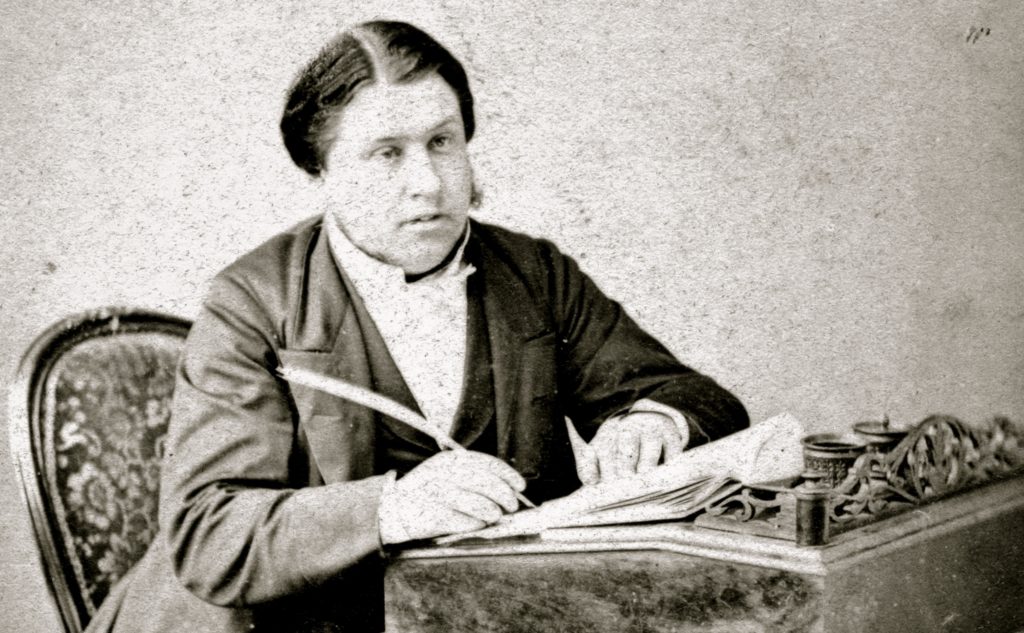
Charles Spurgeon should not be interpreted as a theological sadist, deriving pleasure from pummeling his doctrinal opponents. That he was a notable defender of the faith, is without question. He fought against baptismal regeneration and the undermining of essential evangelical doctrines, which he saw as threats to the gospel. He was outspoken and took strong stands on many issues, but his primary target was false teachings that tinkered with the fundamentals of the faith, doctrines such as the deity of Christ, the inspiration of Scripture, and the reality and horrors of Hell. Beyond that, he enjoyed a rather broad communion with fellow gospel-lovers with whom he disagreed on secondary or tertiary doctrines. If one loved and treasured the gospel, Spurgeon claimed him as a friend.
Spurgeon fearlessly defended truth while displaying gospel unity. One example is evident in his book review of The Doctrines of Annihilation and Universalism, viewed in the Light of Reason, Analogy, and Revelation by Thomas Wood of the Wesleyan Conference. Spurgeon writes, “part of his [Wood’s] argument bears hard upon Calvinists, but we can very well endure all that he can say on that point, and yet thank him for service rendered in slaying the deadly error.” Spurgeon was a Calvinist. Wood was Arminian. Significant differences stand between Calvinism and Arminianism. Spurgeon even closely equated Calvinism with the gospel. That said, even with his high regard for Calvinistic theology, he was most concerned about the “deadly error” which undermined the gospel. In fighting the serious errors of annihilation and universalism, he was one with his fellow gospel advocate, Thomas Wood.
Spurgeon valued Wood’s book, finding essential agreement with its main arguments. To deny eternal punishment for the wicked was to cut at the heart of the gospel that saves men from such judgment. Spurgeon, the Calvinist, understood the stakes and stood shoulder-to-shoulder with Thomas Wood, the Arminian, in opposing damnable heresy.
Reflecting on Wood’s book Spurgeon wrote,
The new doctrines have certainly gone tolerable lengths now, and from annihilation to restoration has been a mere foot-race. We expect soon to hear that the ungodly are to be exalted at once to heaven, and the righteous sent to outer darkness. Why not? All the sympathies of our modern divines are with the unbelieving; the gospel which they preach to them is, ‘doubt and be saved,’ and therefore we may naturally look for a heaven prepared for loose thinkers, who are so brave as to despise all creeds and believe in nothing whatever. The blameworthy folks would seem to be those simple people who believe in plenary inspiration, who feel sin to be a terrible evil, and who therefore believe in eternal punishment: to such narrow-minded bigots our liberal modern thinkers award a place more hot than heavenly. Everybody is received as a Christian nowadays by the Broad School except those who are so in deed and of a truth.
The Broad School included those who were embarrassed by old orthodoxy and who were intoxicated by intellectualism and worldly favor. Such required them to position themselves as more cultured and intellectual than bumpkins who still believed in antiquated theology, communicated in evangelical certainties expressed in the historic creeds and confessions. These Broad School men were, Spurgeon argued,
- More sympathetic to the broadmindedness of unbelievers than to simple people who accepted old settled orthodox views.
- Proclaimers of a gospel of doubt which they preached to unbelievers. Doubt was a virtue to the “Broad School.” Dripping with sarcasm, Spurgeon wrote that their “heaven [is] prepared for loose thinkers who are so brave as to despise all creeds and believe in nothing whatever.”
- Elitists who despised “simple people who believe in plenary inspiration, who feel sin to be a terrible evil, and who therefore believe in eternal punishment.”
- Proud of their broadness of thought, imagining that everybody was a Christian except those who held historically accepted doctrines that were articulated and defended in creeds and confessions.
Clearly, Spurgeon was a fighter; he fought earnestly for the faith.
We do not claim to be unsectarian, if by this be meant the absence of all distinctive principles, and a desire to please parties of all shades of opinion. We believe and therefore speak. We speak in love, but not in soft words and trimming sentences. We shall not court controversy, but we shall not shun it when the cause of Christ demands it.”
Spurgeon was solidly on the side of “simple people who believed in plenary inspiration” and the essential doctrines of the Christian faith. And he was willing to align himself in battles for truth with gospel-loving Christians such as Thomas Wood, with whom he differed on important but somewhat lesser matters. Spurgeon was a fighter and a lover. In this, he is instructive to us on where and how to draw battle lines.
Ray Rhodes, Jr. is the author of Susie: The Life and Legacy of Susannah Spurgeon and Yours, till Heaven, both from Moody Publishers. He is also the author of the upcoming (2024) biography of Charles Haddon Spurgeon from Broadman and Holman Academic Publishers. Follow Ray on Twitter @susiespurgeon1, Facebook @susiespurgeonbook, Instagram @Spurgeonbook, and at www.rayrhodesjr.com. Email Ray at [email protected].